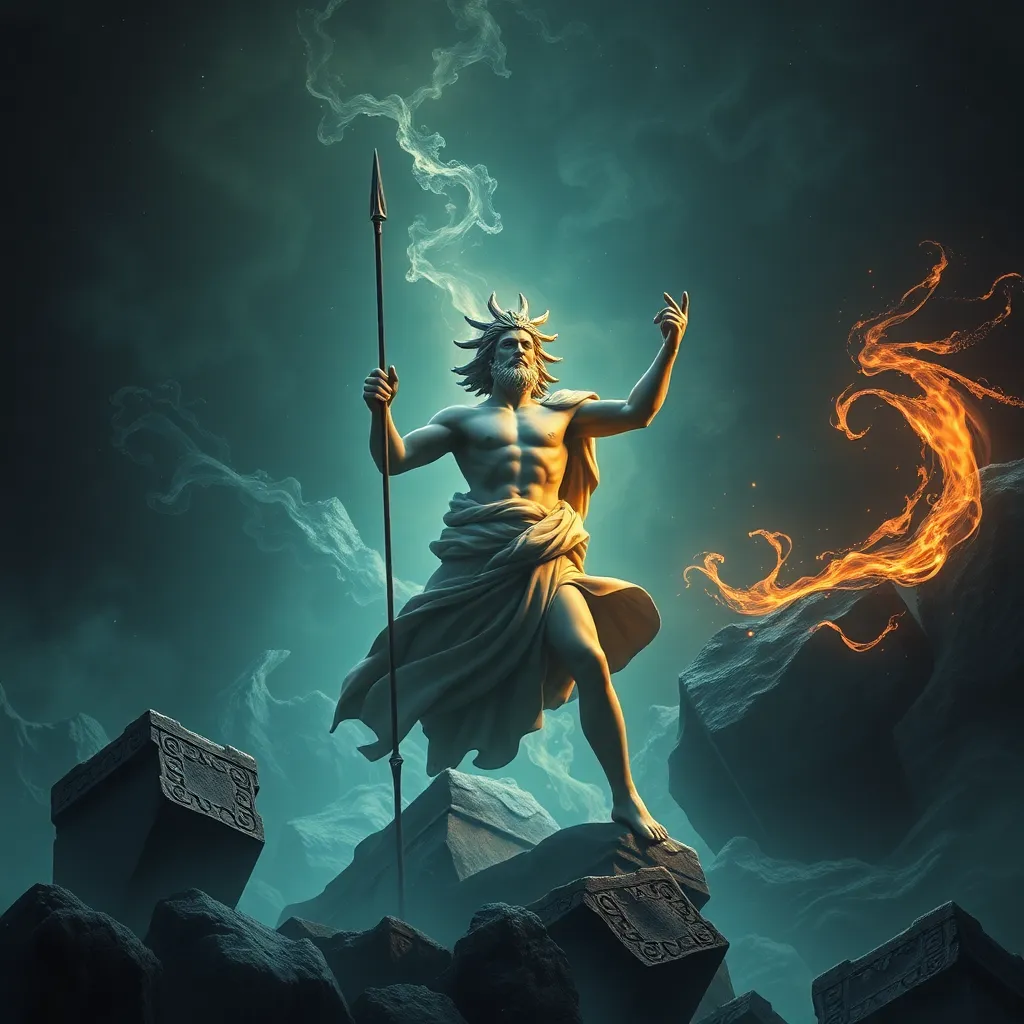The Influence of Perseus on Modern Fantasy Literature
I. Introduction
In the rich tapestry of Greek mythology, Perseus stands out as one of the most celebrated heroes. As the slayer of Medusa and the son of Zeus and Danaë, his story is not only a tale of adventure and valor but also a complex narrative filled with themes of fate, divine intervention, and heroism. The significance of Perseus as a literary figure extends beyond ancient texts, echoing through the ages and influencing countless modern narratives.
This article aims to explore the impact of Perseus on modern fantasy literature, examining how his myth has shaped contemporary storytelling and character archetypes, inspiring authors and creators across various media.
II. The Myth of Perseus: A Brief Overview
The life of Perseus is marked by several key events that highlight his heroic journey:
- Birth and Prophecy: Born to Danaë, who was locked away by her father, Perseus’s destiny was sealed by a prophecy that foretold he would kill his grandfather, Acrisius.
- The Quest for Medusa’s Head: Tasked by King Polydectes to retrieve the head of the Gorgon Medusa, Perseus embarks on a perilous journey.
- Divine Assistance: With help from gods like Athena and Hermes, he acquires magical items, including a mirrored shield, winged sandals, and a helm of invisibility.
- Victory and Return: After slaying Medusa, he uses her head as a weapon, ultimately rescuing Andromeda from a sea monster and fulfilling his destiny.
Major themes in the Perseus myth include heroism, the struggle against fate, and the interaction between mortals and gods. The role of divine intervention is crucial, as the gods provide guidance and assistance, highlighting the complexities of human agency in the face of predestined paths.
III. Archetypes and Themes Derived from Perseus
Perseus embodies several archetypal themes that resonate deeply within modern narratives:
- The Hero’s Journey: His quest narrative aligns closely with the classic hero’s journey, characterized by adventure, trials, and personal growth.
- Destiny and Fate: Perseus’s life exemplifies the struggle against fate, as he attempts to navigate the prophecy that looms over him.
- The Reluctant Hero: Initially hesitant, Perseus’s growth into a confident hero reflects the journey many modern protagonists undertake.
IV. Perseus in Contemporary Fantasy Literature
The influence of Perseus can be seen in numerous modern fantasy works:
- Direct References: Many authors explicitly reference Perseus in their narratives, positioning characters as modern-day equivalents of the hero.
- Character Development: The traits of Perseus—bravery, cleverness, and reliance on both intellect and assistance—are mirrored in contemporary heroes.
- Magical Artifacts: Artifacts inspired by Perseus, such as reflective shields and enchanted items, frequently appear in fantasy literature, symbolizing the hero’s journey and the power of ingenuity.
V. Notable Authors and Works Inspired by Perseus
Several contemporary authors draw from the Perseus myth, integrating its themes and archetypes into their works:
- Rick Riordan: In “Percy Jackson & The Olympians,” the titular character, Percy, is a demigod who faces challenges reminiscent of Perseus’s adventures, including encounters with mythological creatures.
- Madeline Miller: In “Circe,” the narrative explores the world of Greek mythology, with references to Perseus’s legacy and the impact of fate on his lineage.
These works often exhibit a modern interpretation of Perseus, blending traditional elements with contemporary issues, allowing readers to connect with the myth on a deeper level.
VI. Thematic Resonance: Perseus and Modern Issues
The themes present in Perseus’s journey resonate with contemporary societal challenges:
- Heroism in Adversity: Perseus’s struggles reflect modern challenges, inspiring readers to confront their own obstacles.
- Fate and Free Will: The tension between destiny and choice in Perseus’s myth mirrors current discussions about agency in an unpredictable world.
- Empowerment and Resistance: Perseus’s fight against monstrous threats can be seen as a metaphor for standing up against societal evils.
These thematic connections allow for a reinterpretation of Perseus’s journey, making it relevant to modern audiences and their struggles.
VII. The Legacy of Perseus in Pop Culture
Perseus’s influence extends into various forms of popular culture:
- Film Adaptations: Movies like “Clash of the Titans” and its remake showcase Perseus’s adventures, though often with a modern twist.
- Television and Video Games: Series and games frequently incorporate elements of the Perseus myth, shaping how audiences perceive heroism and myth.
- Impact on Fantasy Tropes: The portrayal of Perseus has contributed to the development of common fantasy tropes, such as the reluctant hero and the quest for magical artifacts.
These adaptations have significantly shaped public understanding of the myth, reinforcing and sometimes altering the original narrative.
VIII. Conclusion
Perseus’s enduring influence on fantasy literature is a testament to the power of mythological figures in storytelling. His journey encapsulates universal themes of heroism, fate, and the struggle against adversity, resonating with both ancient and modern audiences.
As we reflect on the importance of myth in narrative, it becomes clear that figures like Perseus will continue to inspire future generations of writers and creators. The exploration of these myths in contemporary contexts opens new avenues for understanding and appreciating the complexities of the human experience.




